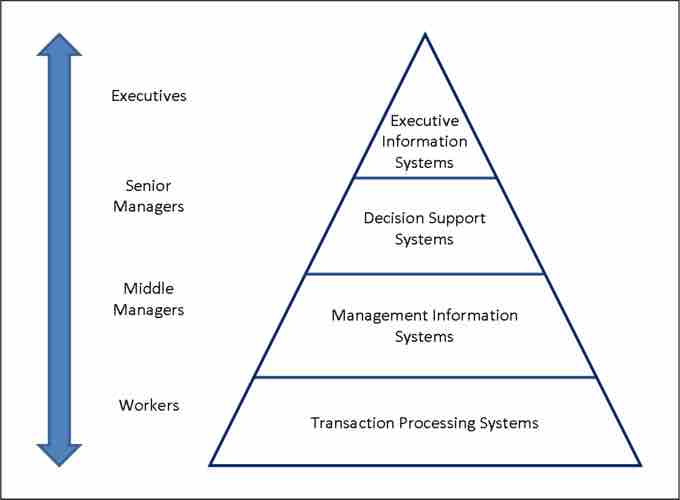
An entry-level compliance job is for you if you have an academic background in finance, law or another related field. These entry-level positions provide practical experience and exposure to compliance regulations. Although a professional certification is not required, employers prefer to hire candidates with credentials. Most certifications require specific courses as well as continuing education credits. For compliance skills to be up-to-date, certifications are important.
Experience in a closely related industry
Relevant experience is important if you want to find a job in compliance. Working in a law office's back-office can give you valuable insight, especially if you are a paralegal. It's also beneficial to have experience in the same industry.

You should also have leadership experience. In a compliance job, you must be able to develop a good team, lead work independently, and interact effectively with internal and external stakeholders. Excellent communication skills, both oral and quantitative, are also required.
Salary
There are many factors that affect the salary for a compliance position. It is important to consider the location, education, experience and whereabouts when determining the salary for a compliance manager. Robert Half, a major salary research firm, estimates a compliance chief earning $209,000 by 2022. It is 1.5% more than the previous year.
The top paying compliance jobs are generally in banks, hedge funds, and other large brands. They typically have a competitive salary and high potential for bonuses. However, compliance jobs at fintech firms are also becoming more attractive, with benefits such as share options and out-of-office flexibility.
Responsibilities
The responsibilities of compliance job roles can be varied, and they may include managing a program or drafting and implementing policies. Whatever the specific job, compliance managers should be proficient in legal and regulatory issues. They also have to advise employees and managers. They assist in investigating potential violations and aid in their identification.

Compliance professionals can move quickly up the career ladder. In two to four years, they can progress from junior compliance officers up to senior officers. They could eventually progress to senior management or compliance manager, which require at minimum five years of experience. Most compliance careers are linear in large corporate organizations. In large companies, analysts may move to the rank of associate vice president and then vice president. However, in smaller firms, the compliance job responsibilities might be delegated by a manager or senior manger.
FAQ
Why is project management so important?
Project management techniques are used to ensure that projects run smoothly and meet deadlines.
Because most businesses depend heavily on project work to produce goods or services,
These projects are essential for companies.
Without effective project management, companies may lose money, time, and reputation.
How can we create a culture of success in our company?
A company culture that values and respects its employees is a successful one.
It is based on three principles:
-
Everybody can contribute something valuable
-
People are treated fairly
-
Respect is shared between individuals and groups
These values can be seen in the behavior of people. For example, they will treat others with courtesy and consideration.
They will respect other people's opinions.
They can also be a source of inspiration for others.
Additionally, the company culture encourages open communication as well as collaboration.
People feel safe to voice their opinions without fear of reprisal.
They know mistakes will be accepted as long as they are dealt with honestly.
The company culture encourages honesty and integrity.
Everybody knows they have to tell the truth.
Everyone is aware that rules and regulations apply to them.
And no one expects special treatment or favors.
How does a manager motivate their employees?
Motivation refers to the desire to perform well.
Engaging in something fun can be a great way to get motivated.
You can also be motivated by the idea of making a difference to the success and growth of your organization.
For example, if your goal is to become a physician, you will probably find it more motivational to see patients rather than to read a lot of medicine books.
The inner motivation is another type.
One example is a strong sense that you are responsible for helping others.
Maybe you like working hard.
If you feel unmotivated, ask yourself why.
You can then think of ways to improve your motivation.
What is TQM?
When manufacturing companies realized that price was not enough to compete, the industrial revolution brought about the quality movement. To remain competitive, they had to improve quality as well as efficiency.
Management responded to the need to improve, and developed Total Quality Management (TQM). This focused on improving every aspect of an organization’s performance. It included continuous improvement and employee involvement as well as customer satisfaction.
How do you manage your employees effectively?
The key to effective management of employees is ensuring their happiness and productivity.
It also means having clear expectations of their behavior and keeping track of their performance.
Managers must be clear about their goals and those of their teams in order to succeed.
They must communicate clearly with their staff. And they need to ensure that they reward good performance and discipline poor performers.
They must also keep records of team activities. These include:
-
What did we accomplish?
-
How much work was done?
-
Who did it all?
-
What was the moment it was completed?
-
Why was this done?
This information can help you monitor your performance and to evaluate your results.
What are the 4 main functions of management?
Management is responsible to plan, organize, direct, and control people and resources. Management also involves setting goals and developing policies.
Management helps an organization achieve its objectives by providing direction, coordination, control, leadership, motivation, supervision, training, and evaluation.
Management's four main functions are:
Planning - Planning refers to deciding what is needed.
Organizing - Organization involves deciding what should be done.
Directing - Directing means getting people to follow instructions.
Controlling: Controlling refers to making sure that people do what they are supposed to.
Statistics
- As of 2020, personal bankers or tellers make an average of $32,620 per year, according to the BLS. (wgu.edu)
- 100% of the courses are offered online, and no campus visits are required — a big time-saver for you. (online.uc.edu)
- UpCounsel accepts only the top 5 percent of lawyers on its site. (upcounsel.com)
- Hire the top business lawyers and save up to 60% on legal fees (upcounsel.com)
- The profession is expected to grow 7% by 2028, a bit faster than the national average. (wgu.edu)
External Links
How To
How can you create a Quality Management Plan, (QMP)?
QMP (Quality Management Plan), introduced in ISO 9001,2008, provides a systematic method for improving processes, products, or services through continuous improvement. It focuses on the ability to measure, analyze and control processes and customer satisfaction.
The QMP is a standard method used to ensure good business performance. The QMP aims to improve the process of production, service delivery, and customer relationship. A QMP should include all three aspects - Processes, Products, and Services. A "Process" QMP is one that only includes one aspect. The QMP that focuses on a Product/Service is called a "Product." QMP. And when the QMP concentrates on Customer Relationships, it is called "Customer" QMP.
Scope, Strategy and the Implementation of a QMP are the two major elements. These are the following:
Scope: This is the scope of the QMP and its duration. This will be used to define activities that are performed in the first six months of a QMP.
Strategy: These are the steps taken in order to reach the goals listed in the scope.
A typical QMP is composed of five phases: Planning Design, Development, Implementation and Maintenance. Below is a description of each phase:
Planning: In this stage the QMP's objectives and priorities are established. Every stakeholder involved in the project is consulted to determine their expectations and needs. The next step is to create the strategy for achieving those objectives.
Design: This stage is where the design team creates the vision, mission and strategies necessary for successful implementation of QMP. These strategies can be implemented through the creation of detailed plans.
Development: The development team is responsible for building the resources and capabilities necessary to implement the QMP effectively.
Implementation involves the actual implementation using the planned strategies.
Maintenance: This is an ongoing procedure to keep the QMP in good condition over time.
Several additional items should be added to the QMP.
Participation of Stakeholders: The QMP's success depends on the participation of stakeholders. They should actively be involved during the planning and development, implementation, maintenance, and design stages of QMP.
Project Initiation. It is important to understand the problem and the solution in order to initiate any project. The initiator must know the reason they are doing something and the expected outcome.
Time Frame: This is a critical aspect of the QMP. The simplest version can be used if the QMP is only being implemented for a short time. For a long-term commitment you may need more complicated versions.
Cost Estimation. Cost estimation is another crucial component of QMP. You cannot plan without knowing how much money you will spend. Before you start the QMP, it is important to estimate your costs.
QMPs are more than just documents. They can also be updated as needed. It evolves as the company grows and changes. It is important to review it periodically to ensure it meets all current requirements.